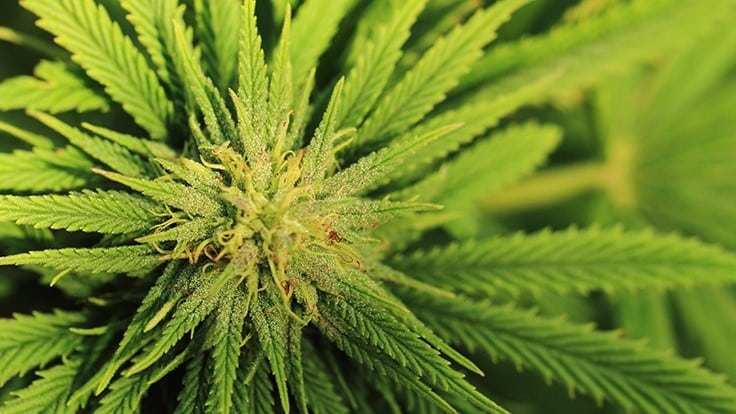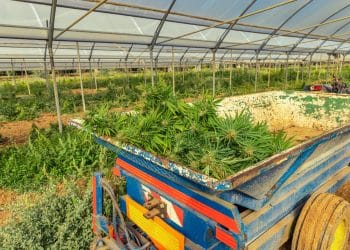“It’s the future and Congress ought not deny it”
Washington, DC: Today, Senator Ron Wyden and Congressman Earl Blumenauer introduced legislation to allow for interstate commerce when it comes to state-legal cannabis programs.
“Interstate commerce is good for both patients and consumers, as it will decrease the amount of time it takes for recently enacted medical programs to see products on the shelves and increase the variety of consumer options in both the adult-use and medical marketplaces,” NORML Political Director Justin Strekal said. “Just as Americans around the country enjoy Kentucky bourbon, so should they be allowed to enjoy Oregon cannabis.”
“In short, it’s the future and Congress ought not deny it,” Strekal concluded.
Per the release distributed by Senator Wyden:
Wyden and Blumenauer’s State Cannabis Commerce Act would make these existing protections permanent and expand them to include all cannabis producers and consumers in compliance with state law. The legislation would also protect producers or consumers who transport cannabis between cannabis-legal states, provided that both states have legal cannabis programs and that both states affirmatively agree to the transportation.
“As more and more states legalize cannabis, the gap between state and federal laws will only grow more confusing for both legal businesses and consumers,” Wyden said. “The solution is clear: the federal government needs to end its senseless and out of touch prohibition. As we fight for that ultimate goal, however, Congress can and should immediately act to protect the will of Oregonians and voters in other states from federal interference—and that should include interstate cannabis commerce.”
“The federal government is hopelessly out of touch with the American people on cannabis,” Blumenauer said. “Last week, the House agreed and passed my amendments to forbid the federal government from interfering with cannabis programs in the states, D.C. and tribal communities. This week, we are turning to a top priority for Oregonians—allowing for interstate sale of cannabis. It’s past time we protect the states, like Oregon, that have gotten it right.”
According to the most recent FBI Uniform Crime Report, police made 659,700 arrests for cannabis-related violations in 2017. That total is more than 21 percent higher than the total number of persons arrests for the commission of violent crimes (518,617) in 2017. Of those arrested for cannabis crimes, just under 91 percent (599,000) were arrested for cannabis possession offenses, a slight increase over the previous year’s annual totals. Total cannabis arrests in 2017 increased for the second straight year, after having fallen for nearly a decade.
Thirty-three states, Washington, D.C. and the U.S. territories of Guam and Puerto Rico have enacted legislation specific to the physician-authorized use of cannabis. Moreover, an estimated 73 million Americans now reside in the ten states where anyone over the age of 21 may possess cannabis legally. An additional thirteen states have passed laws specific to the possession of cannabidiol (CBD) oil for therapeutic purposes.
Sixty-eight percent of registered voters “support the legalization of cannabis,” according to 2018 national polling data compiled by the Center for American Progress. The percentage is the highest level of support for legalization ever reported in a nationwide, scientific poll.
Majorities of Democrats (77 percent), Independents (62 percent), and Republicans (57 percent) back legalization. The results of a 2018 nationwide Gallup poll similarly found majority support among all three groups.
To date, these statewide regulatory programs are operating largely as voters and politicians intended. The enactment of these policies have not negatively impacted workplace safety, crime rates, traffic safety, or youth use patterns. They have stimulated economic development and created hundreds of millions of dollars in new tax revenue.
Specifically, a 2019 report estimates that over 211,000 Americans are now working full-time in the cannabis industry. Tax revenues from states like Colorado, Oregon, and Washington now exceed initial projections. Further, numerous studies have identified an association between cannabis access and lower rates of opioid use, abuse, hospitalizations, and mortality.
###
NORML’s mission is to move public opinion sufficiently to legalize the responsible use of cannabis by adults, and to serve as an advocate for consumers to assure they have access to high-quality cannabis that is safe, convenient, and affordable.
Find out more at www.norml.org and read our factsheets on the most common misconceptions and myths regarding reform efforts around the country at www.norml.org/marijuana/fact-sheets













